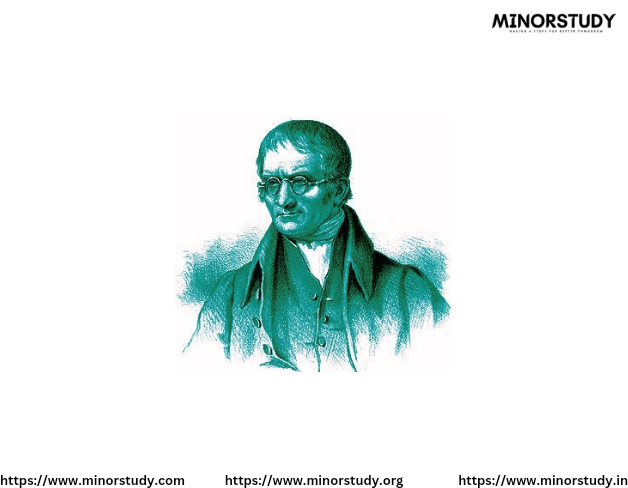list of some of the most famous female scientists who have made groundbreaking contributions to various fields of science
- Minorstudy Web blogs
- Dec 6, 2024
- 3 min read

Here is a list of some of the most famous female scientists who have made groundbreaking contributions to various fields of science:
1. Marie Curie (1867–1934)
Field: Physics, Chemistry
Contributions: Known for her pioneering research on radioactivity, Marie Curie was the first woman to win a Nobel Prize and the only person to ever win Nobel Prizes in two different sciences (Physics and Chemistry).
2. Rosalind Franklin (1920–1958)
Field: Biophysics, Molecular Biology
Contributions: Best known for her critical role in discovering the structure of DNA through X-ray crystallography, her work provided key insights into the double helix structure.
3. Ada Lovelace (1815–1852)
Field: Mathematics, Computer Science
Contributions: Recognized as the first computer programmer, Ada Lovelace conceptualized the idea of a general-purpose computing machine and wrote algorithms for Charles Babbage’s Analytical Engine.
4. Katherine Johnson (1918–2020)
Field: Mathematics, Space Science
Contributions: An African American mathematician whose calculations were critical to the success of NASA’s space missions, including the trajectory for John Glenn’s orbital flight and the Apollo moon landing.
5. Chien-Shiung Wu (1912–1997)
Field: Physics
Contributions: Known for her experimental work on the weak force, Wu’s research helped prove the theory of parity violation, a fundamental concept in particle physics.
6. Jane Goodall (born 1934)
Field: Primatology, Anthropology
Contributions: Jane Goodall revolutionized the study of primates with her long-term observation of chimpanzees in Tanzania, providing groundbreaking insights into their behavior and social structures.
7. Barbara McClintock (1902–1992)
Field: Genetics
Contributions: McClintock discovered "jumping genes" (transposons), a finding that challenged the existing genetic theory and expanded the understanding of gene regulation.
8. Marie Tharp (1920–2006)
Field: Geology, Oceanography
Contributions: Tharp created the first scientific map of the ocean floor, which provided evidence for the theory of plate tectonics.
9. Sally Ride (1951–2012)
Field: Physics, Astronautics
Contributions: Ride became the first American woman in space in 1983, inspiring countless women to pursue careers in science and engineering.
10. Lise Meitner (1878–1968)
Field: Physics
Contributions: Meitner played a crucial role in the discovery of nuclear fission, though her male colleague Otto Hahn received the Nobel Prize for the work. She is often overlooked in the history of the discovery.
11. Mary Anning (1799–1847)
Field: Paleontology
Contributions: Anning made significant fossil discoveries along the cliffs of Dorset, including the first complete ichthyosaurus skeleton. Her work was essential in the early development of paleontology.
12. Dorothy Hodgkin (1910–1994)
Field: Chemistry, Biochemistry
Contributions: Hodgkin received the Nobel Prize in Chemistry in 1964 for her work on the structure of important biochemical substances using X-ray crystallography, including penicillin and vitamin B12.
13. Rita Levi-Montalcini (1909–2012)
Field: Neuroscience
Contributions: Levi-Montalcini won the Nobel Prize in Physiology or Medicine in 1986 for her discovery of the nerve growth factor (NGF), which has important implications in neurobiology.
14. Mae Jemison (born 1956)
Field: Medicine, Engineering, Space Science
Contributions: Jemison became the first African American woman to travel in space, serving as a mission specialist on the Space Shuttle Endeavour in 1992.
15. Ellen Ochoa (born 1958)
Field: Engineering, Space Science
Contributions: Ochoa became the first Latina astronaut in space, and later served as the director of the Johnson Space Center. She holds several patents for her work in optical analysis.
16. Hedy Lamarr (1914–2000)
Field: Engineering, Invention
Contributions: Though famous as an actress, Lamarr co-invented a frequency-hopping spread spectrum technology, which became a key component in modern wireless communication technologies like Bluetooth and Wi-Fi.
17. Barbara Liskov (born 1939)
Field: Computer Science
Contributions: Liskov is known for her work in programming languages and for the Liskov Substitution Principle, a key concept in object-oriented programming.
18. Grace Hopper (1906–1992)
Field: Computer Science, Mathematics
Contributions: Hopper was a pioneering computer scientist who invented the first compiler for a computer programming language, which led to the development of COBOL.
19. Elizabeth Blackwell (1821–1910)
Field: Medicine
Contributions: Blackwell was the first woman to receive a medical degree in the United States, paving the way for women in medicine.
20. Florence Nightingale (1820–1910)
Field: Nursing, Statistics
Contributions: Known as the founder of modern nursing, Nightingale used statistics to improve sanitary practices in hospitals, significantly reducing mortality rates during the Crimean War.
These women broke barriers in their respective fields, contributing to scientific advancements that have had lasting impacts on society and the world.











Comments